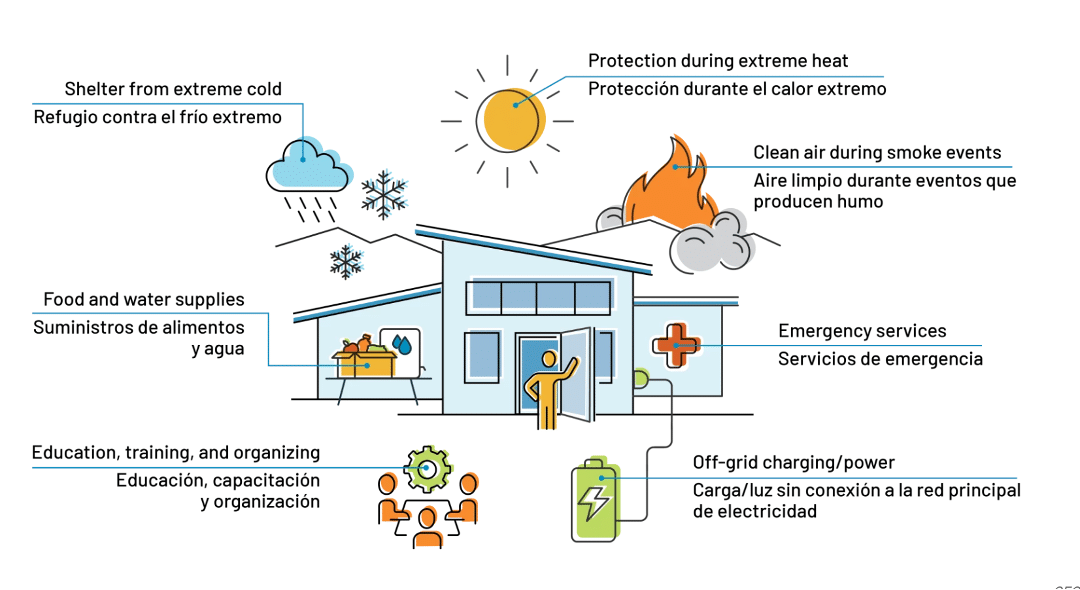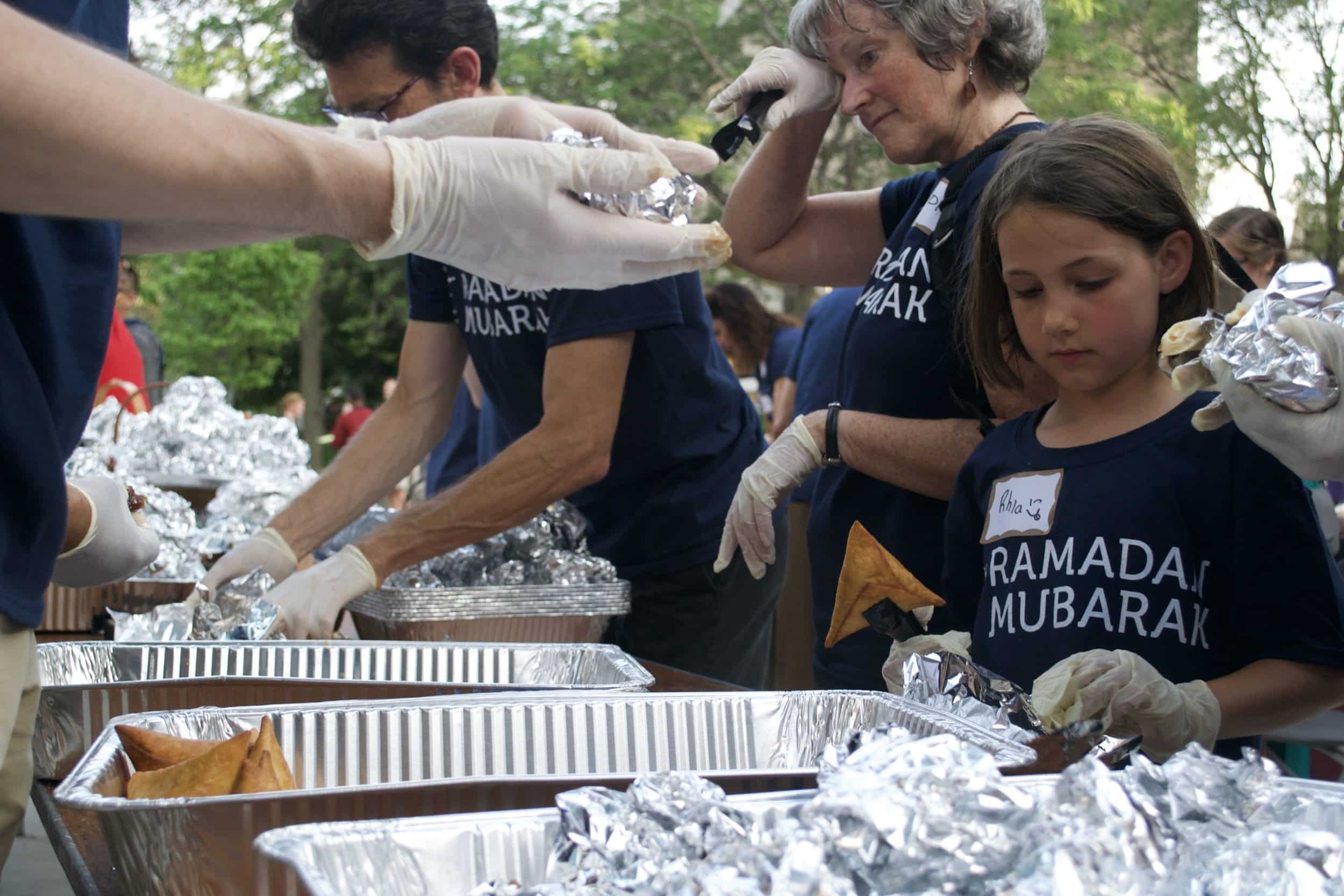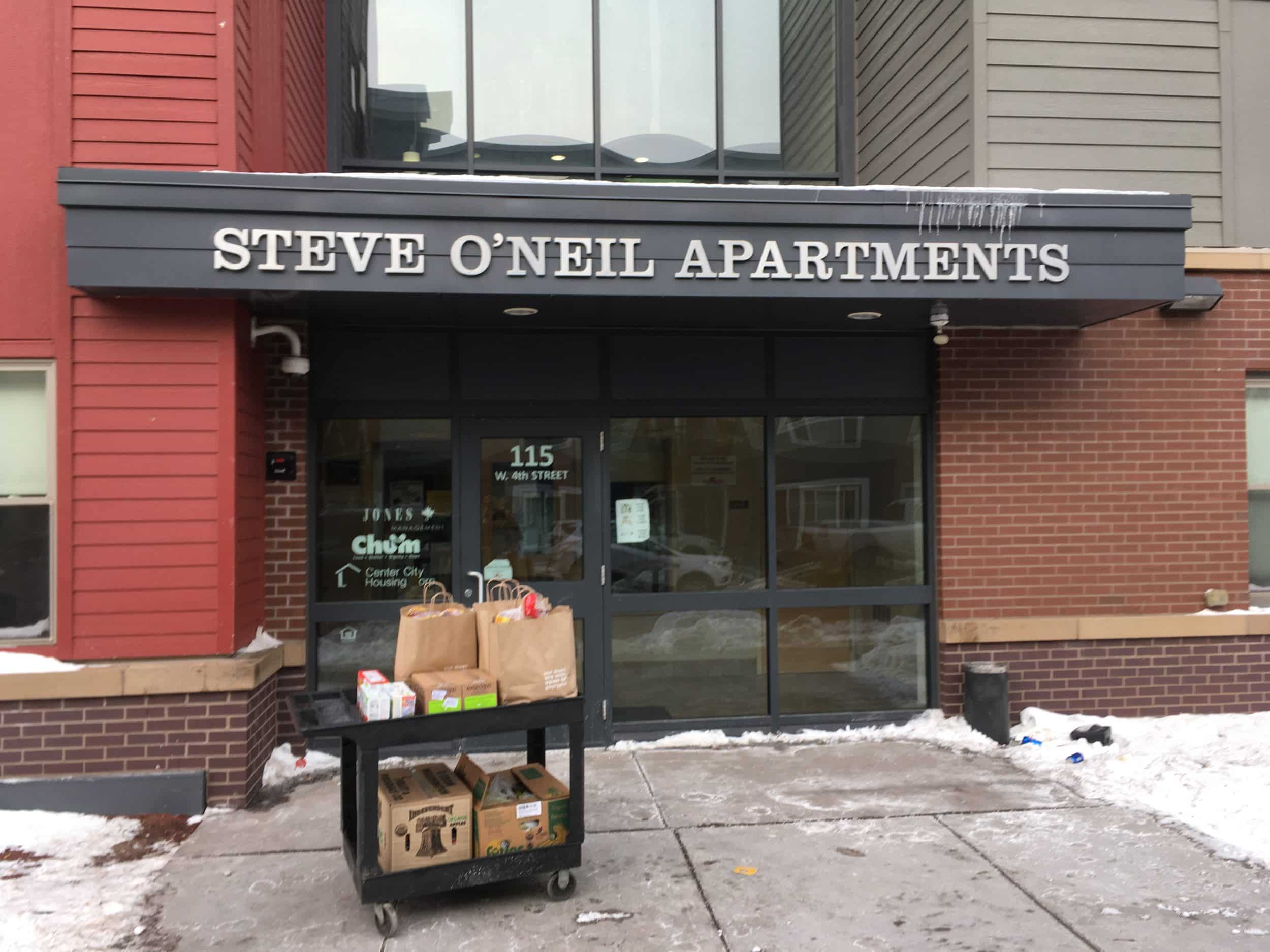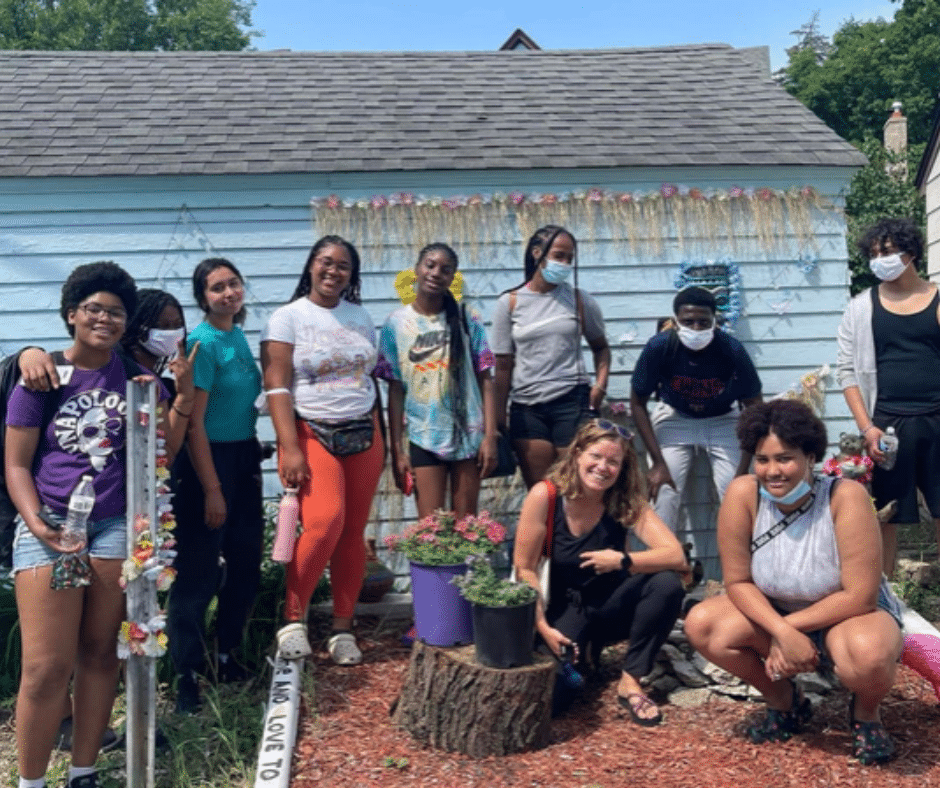

What Are Resilience Hubs?
Climate disruption is already changing our communities. As we work to honor and build our interdependence, transition into carbon-free energy production, and adapt to the impacts of climate disruption like bigger storms, resilience hubs are important tools for supporting our communities.
When a big storm or other climate-related event happens, resilience hubs are where neighbors can come for shelter, electricity or food, and they can be a central location for volunteers, donations, and coordination with emergency workers.
Resilience hubs are energy efficient, community-serving places that have the resources and connections needed to support community members both in moments of crisis and in the everyday.
In between those weather events when the skies are blue, they’re trusted spaces for community to come together and access services, as well as places that can offer training, support, and resources to help neighbors in their transition to carbon-free energy.
Resilience hubs are tools to help us convert to greener energy and adapt to a changing climate, but they’re also an invitation to an intentional way of being in community.
Components of a Resilience Hub

Source: Community Environmental Council
Services: Resilience hubs can be a one-stop shop for services and programs outside times of crisis to provide support for the health and well-being of the community and build trust with neighbors. Examples include community kitchens, community clinics, daycare, senior care, education services, mental health services and many more.
Communication: Resilience hubs build networks of communication through trusted relationships with neighbors, making sure communication happens within and outside the service area year-around. This is especially important during major weather events and throughout the community recovery process.

Source: Community Environmental Council
Building: Resilience hubs center around a building – that building needs to be adequate to support the community services and communication on stormy days and good weather days. Sometimes that means upgrading an existing building (like a community center), and sometimes it means building something new.
Power: From providing power so people can charge their phones to making sure that food is kept stable, resilience hubs require consistent sources of energy to make sure that they’re able to operate year-round, in a crisis, and during recovery.
Operations: We need folks to do the work! We need people to build the relationships with community, keep the building operating, and manage resources and volunteers when a crisis happens.
Want to get involved or learn more?
We'd love to come present on resilience hubs for your group, share more resources and research, and talk with you about how a community or group you're a part of can become a resilience hub!
Please contact Joshua Lewis (joshua@mnipl.org) to get connected!

MNIPL's Work


MNIPL has been building climate-resilient communities since the beginning through our work in supporting faith, spiritual, and non-profit communities in their energy transition and building networks of folks who care about this world and the people in it.
Through our relationships with communities across boundaries and regions, we’ve built a network of organizers and volunteers. Not only do these trusted relationships allow us to get folks to show up when help is needed, but they also help us know what the needs are. We’re using our deep social networks to re-imagine what resilience can look like and asking our communities and ourselves: what does it take for our communities to thrive?
MNIPL has been building climate-resilient communities since the beginning through our work in supporting faith, spiritual, and non-profit communities in their energy transition and building networks of folks who care about this world and the people in it.
Through our relationships with communities across boundaries and regions, we’ve built a network of organizers and volunteers. Not only do these trusted relationships allow us to get folks to show up when help is needed, but they also help us know what the needs are. We’re using our deep social networks to re-imagine what resilience can look like and asking our communities and ourselves: what does it take for our communities to thrive?
Our goal is to grow 10 faith, spiritual, or non-profit organizations across the state into resilience hubs for their communities. We’ll provide support, curriculum, and consulting to help bring your building into a place where your neighbors can get what they need in both blue and stormy skies.
MNIPL is taking a three-pronged approach to our climate hub work in order to educate Minnesotans on the importance of resilience hubs, support communities of faith, conscience, or spiritual practice in becoming resilience hubs, and convening leaders and experts in this space to support this work on a systems level.
Community Climate Resilience Network
This 10-session series of training and conversation brings together organizations throughout the state that are interested in learning more about how resilience hubs work and are considering how to become one.
We’ll cover topics like, “What are Resilience Hubs?”, building good and right relationships with your communities, and emergency preparedness with experts in the field.
Learn more and sign up for our 2025 sessions here!
Resilience Hub Community of Practice
For folks who are interested in going deeper, we’re also launching a Community of Practice. This is for communities of faith, conscience, or spiritual practice who are ready to start this work or who are already doing it. This Community of Practice will bring insights from other organizations who are doing this work, practical work plans to build your capacity, and connections to leaders and experts locally and statewide.
If you're interested in joining this group, email Buff Grace and let him know!
Statewide Task Force
This group of state level experts and decision makers convenes to offer advice and support to communities participating in the Community Climate Resilience Network and to hear from those communities first-hand experience in developing resilience hubs.
The Beginnings of This Work
MNIPL has a lot of experience in community organizing, from fighting carbon pipelines to helping Minnesota faith and spiritual communities navigate their energy transitions. But there were two pivotal moments – the global pandemic and the uprisings after the murder of George Floyd – that launched our commitment to resilience hubs. Read more about these two moments:
Food Delivery in Duluth

When the pandemic hit, many folks in Duluth were struggling to make ends meet as they couldn’t go to work or were laid off during lockdowns. Many local restaurants were also struggling to pay their employees because they had no customers.
Because of MNIPL’s connections with faith and spiritual communities, as well as restaurants and non-profits, we were able to raise funds and find volunteers to order and prepare meals from local restaurants and deliver them to people and families who needed them.
This pivot of showed us that we have an important role to play building our communities' capacity to respond with action and compassion in times of crisis.
Supporting Racial Justice Protestors
After the murder of George Floyd, MNIPL Board Member Ruhel Islam opened the doors of his restaurant to protestors and asked MNIPL to help. We began providing meals and medical triage, pouring milk into people's eyes after they were hit with tear gas, providing ice and Tylenol to people hit by rubber bullets, and getting people more badly injured to the hospital. One volunteer rode her bike across the Cities looking for enough Tylenol to support all the people coming in.
After Ruhel's restaurant burned down, the facilities moved to a nearby church, but MNIPL was committed to helping our community heal. Young people in our Youth 'N Power program helped plant a community garden at the old restaurant site and distribute the food to people in the neighborhood.

Want to get involved or learn more?
We'd love to come present on resilience hubs for your group, share more resources and research, and talk with you about how a community or group you're a part of can become a resilience hub!
Please contact Buff Grace (buff@mnipl.org) to get connected!
